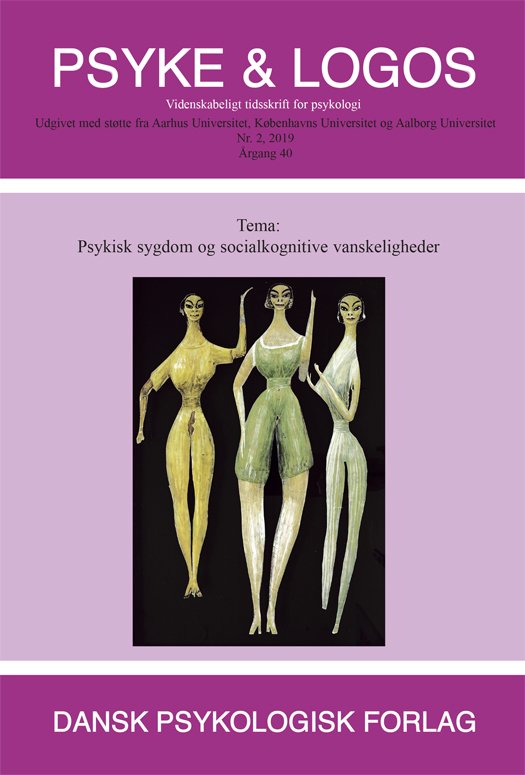Can you talk about schizophrenia in remission without also talking about (social)cognition?
DOI:
https://doi.org/10.7146/pl.v40i2.117808Keywords:
Schizophrenia, Remission, Social cognition, CognitionAbstract
Background: Schizophrenia is costly to the affected individual, as well as to society. In relation to the recent debate on whether it should be possible to be declared healthy from psychiatric diagnoses, a definition of the diagnosis of schizophrenia in remission has been requested from the political side.
Method: Through reviews in PubMED, PsycINFO and Embase, five reviews, containing critical analysis of and research based on The Remission in Schizophrenia Working Groups (RSWG) consensus criteria are included in this literature study.
Results: Remission is a temporary condition, defined by symptom reduction in core symptoms, such as delusions and hearing hallucinations. The RSWG criteria are valid and applicable in research and clinical practice. Remission rates vary across studies (17-88%). Early treatment response, the severity of baseline symptoms, premorbid function level, duration of untreated psychosis, and drug compliance are predictors of remission. Remission is associated with an increased functional level, but not synonymous with this.
Discussion: Based on significant evidence, it is discussed whether it makes sense to talk about remission without simultaneously including neuro- and social cognition, which, in contrast to the core symptoms, correlates highly with functional level.
Downloads
Published
How to Cite
Issue
Section
License
Ophavsret er tidsskriftets og forfatternes. Det er gældende praksis, at artikler publiceret i Psyke & Logos, som efterfølgende oversættes til andet sprog, af forfatteren frit kan publiceres i internationale tidsskrifter, dog således at det ved reference fremgår, at den oversatte artikel har et forlæg i en dansksproget version i Psyke & Logos. Artikler kan frit deles og linkes til på forsknings- og undervisningsnetværk (så som Blackboard). Link foretrækkes, fordi det giver oplysning om brug af tidsskriftets artikler.




